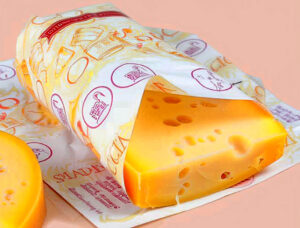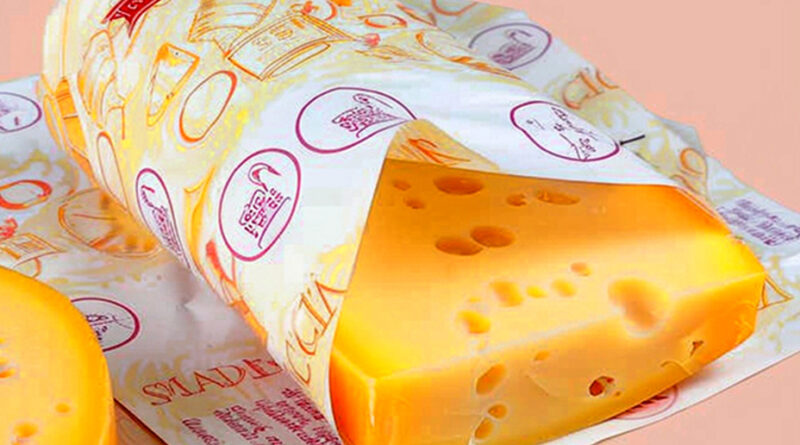The History of Deli Paper in the Food Industry

The History of Deli Paper in the Food Industry
Deli paper has been an essential component of the food industry for decades, serving as a practical and versatile packaging solution for various food items. As consumer preferences and industry practices have evolved, custom deli paper has emerged as a significant marketing tool for businesses. In this blog post, we will explore the rich history of deli paper, its evolution, and its importance in the modern food industry.
The Origins of Deli Paper
The history of deli paper dates back to the late 19th and early 20th centuries, when delis began to gain popularity in urban areas. As people flocked to cities for work and leisure, the demand for convenient, ready-to-eat meals surged. Deli paper quickly became the go-to solution for wrapping sandwiches, meats, and other food items, allowing customers to enjoy their meals on the go.
Early Uses of Deli Paper
Initially, deli paper was plain and unmarked, serving only a functional purpose. It was primarily made from greaseproof paper that could withstand the oil and moisture of food without tearing. This early version of deli paper was essential for preserving the freshness of the food, ensuring that customers received their orders in excellent condition.
The Evolution of Deli Paper Design
As the food industry evolved, so did the design and functionality of deli paper. With the rise of branding and marketing, businesses recognized the potential of custom deli paper to enhance their image. This shift marked a significant turning point in the history of deli paper.
The Introduction of Customization
By the mid-20th century, food businesses began to experiment with designs, logos, and colors on their deli paper. This customization allowed cafes, restaurants, and delis to create a unique identity, making their packaging an extension of their brand. Custom designs not only made the food more visually appealing but also served as an advertising tool, capturing the attention of potential customers.
A Shift Toward Sustainability
In recent years, the focus on sustainability has transformed the deli paper industry. With growing concerns about environmental issues, many food businesses have sought eco-friendly alternatives. As a result, suppliers have introduced custom deli paper made from recycled or biodegradable materials, aligning with the values of environmentally conscious consumers.
The Role of Deli Paper in Modern Food Service
Today, deli paper plays a multifaceted role in the food service industry. It is not just a practical solution for packaging; it has become a marketing tool and a means of enhancing customer experience.
Enhancing Customer Experience
In a fast-paced world, convenience is key. Customers appreciate the ability to grab their meals quickly and enjoy them on the go. Custom deli paper facilitates this convenience by providing an easy-to-handle and visually appealing option for packaging. Cafes and restaurants that utilize well-designed deli paper create a memorable dining experience that encourages repeat business.
Building Brand Recognition
As branding becomes increasingly important in the competitive food industry, custom deli paper serves as a canvas for businesses to showcase their logos and unique designs. Every meal served wrapped in branded deli paper reinforces brand recognition, ensuring that customers remember where they purchased their food. This ongoing exposure contributes to customer loyalty and word-of-mouth marketing.
Trends in Deli Paper Usage
As consumer preferences continue to evolve, several trends are shaping the future of deli paper in the food industry.
Personalization
With the rise of the personalization trend, many food businesses are looking for ways to connect with customers on a more personal level. Offering custom deli paper that features personalized messages or designs can create a unique touch that resonates with customers. This trend not only enhances customer experience but also fosters brand loyalty.
Social Media Influence
In today’s digital age, the role of social media in the food industry cannot be overstated. Visually appealing food packaging encourages customers to share their experiences online. Custom deli paper can enhance the aesthetics of a meal, making it more Instagram-worthy. Businesses that capitalize on this trend can significantly increase their online presence through user-generated content.
Conclusion
The history of deli paper reflects the evolution of the food industry, transitioning from a simple packaging solution to a versatile marketing tool. As cafes and restaurants continue to embrace custom deli paper, they are not only enhancing their brand identity but also improving customer experience. With the growing emphasis on sustainability and personalization, the future of deli paper looks promising.
Investing in custom deli paper is a smart choice for food businesses aiming to stand out in a crowded market. By recognizing the importance of this packaging solution, you can create memorable experiences for your customers and foster long-term loyalty.
FAQs
1. What is deli paper used for?
Deli paper is primarily used for wrapping food items such as sandwiches, meats, and baked goods, helping to keep them fresh and presentable.
2. How has deli paper evolved over time?
Deli paper has evolved from plain, functional wrapping to customized designs that enhance brand identity and customer experience.
3. Are there eco-friendly options for custom deli paper?
Yes, many suppliers now offer custom deli paper made from recycled or biodegradable materials, aligning with sustainable practices.
4. How does custom deli paper benefit food businesses?
Custom deli paper enhances brand recognition, improves customer experience, and serves as a cost-effective marketing tool.
5. Why is branding important in the food industry?
Branding helps businesses stand out in a competitive market, fosters customer loyalty, and encourages word-of-mouth referrals. Custom deli paper plays a crucial role in reinforcing brand identity.




